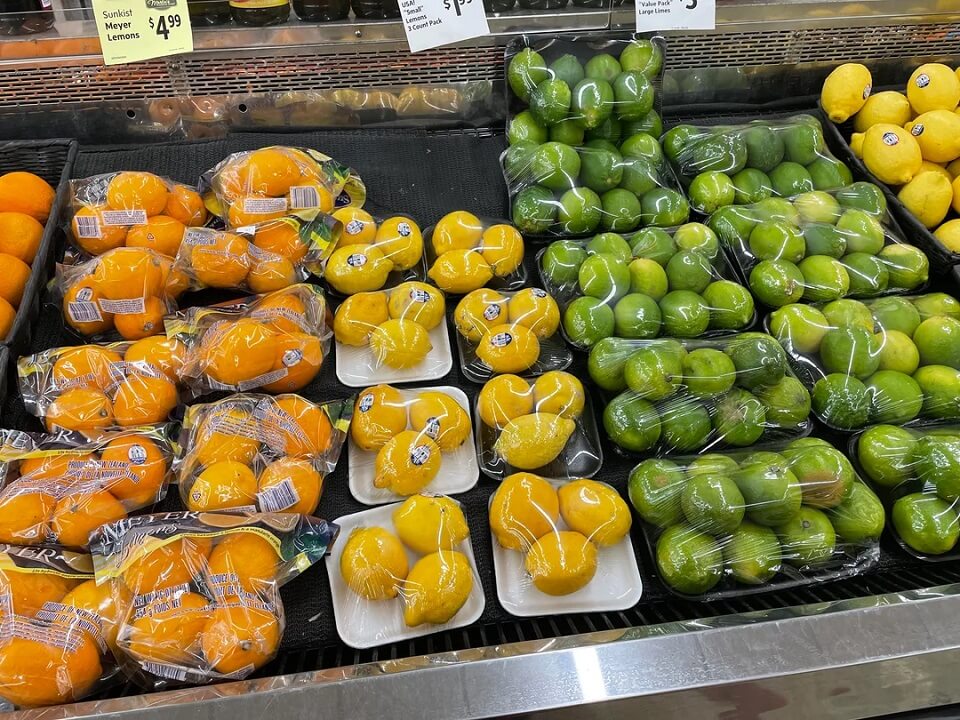Yet another example of a growing trend has emerged on r/Anticonsumption. More and more grocery stores are putting plastic in the produce aisle, wrapping fruits and veggies in plastic wrap, whether they need it or not. This time, the victims were a shelf full of citrus fruits.
What happened?
A frustrated Redditor shared a photo titled, "If only there was a natural packaging of some sort."
The picture shows large trays of limes, small trays of lemons, and bags of lemons. The trays are styrofoam swathed in cling wrap, and the bags are printed plastic.

"But how will I ever be able to carry three lemons without packaging?" said one sarcastic commenter.
"Should be illegal," remarked another user.
Why does the plastic packaging matter?
Any extra bit of packaging costs the provider money to manufacture and apply, so produce wrapped this way is likely to cost consumers more. The plastic packaging itself is a potential health hazard, not to mention how difficult it is to recycle. When left to break down in nature, it takes over 100 years and sheds microplastics along the way.
Meanwhile, as the original poster pointed out, packaging for citrus fruits is totally unnecessary since they naturally come with thick peels that protect the fruit inside from damage. It's not quite as bad as the grocery store selling individually wrapped oranges or another one that did the same with bananas. But it's still pointless waste.
What is the provider doing about excessive plastic?
While the trays of lemons and limes had generic packaging, the bags of lemons came from Sunkist. According to the Healthy Family Project, Sunkist uses 100% recyclable plastic packaging.
"We have a soft spot for Mother Nature. (Can you blame us?)" the company says on its website. "And we want to treat her right, so we can keep growing the most high-quality citrus around."
What can I do to minimize plastic waste?
When possible, growing food in your own yard is the number one most effective way to make sure packaging never touches it. It's also a way to save money and improve your health — and it's delicious.
If that's not an option, choose a brand that isn't mummified in plastic. In this case, the original photographer did capture loose oranges and lemons at the sides of the frame; if enough people bought those and left that wrapped produce where it was, the store would eventually give up on plastic-wrapped varieties.
Also, keep an eye out for future developments in produce packaging. Researchers are looking for convenient, eco-friendly, food-safe options that don't use plastic.
Join our free newsletter for easy tips to save more, waste less, and help yourself while helping the planet.









